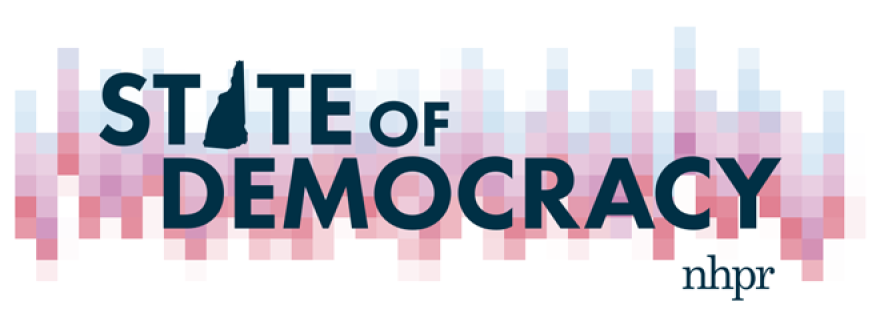As New Hampshire students head back to school this week, education is on many parents’ minds. And with the gubernatorial primary less than two weeks away, candidates’ positions on these issues could play a major role on voters’ decisions.
In this year’s governor’s race, the candidates’ views fall largely along party lines, with differences over how much and where to spend money.

When it comes to education, there’s one topic the four Republican gubernatorial candidates all strongly agree on: a dislike for Common Core.
During the first GOP debate in Windham last month, when candidates Chris Sununu, Frank Edelblut, Jeanie Forrester and Ted Gatsas were all asked whether they support the state's participation in Common Core, they all replied with a firm, "No."
Click here for a standalone interactive.
Getting rid of Common Core, a set of national standards that New Hampshire and dozens of other states have adopted, are common Republican stances this election cycle.
As Sununu, a third-term Executive Councilor said, when it comes to public schools, New Hampshire needs to “get Washington bureaucracy out of the state.” But Sununu takes this embrace of local control one step further.
“I am going to gut the Board of Education," Sununu said at the first GOP debate. "I am going to gut all of them, and I am the only one on this stage who has turned down members to the Board of Education.”
Gatsas, on the other hand, said if he’s elected, all nominations to the board must first pass this litmus test: Do you prioritize local and parental control?

But there’s one topic that crosses party lines: the state’s formula for funding school districts. All seven candidates, Democrat and Republican, agree that retooling the formula must be a priority for whoever takes the corner office in 2017.
For several years, legislators have capped the amount of state dollars going to school districts with growing enrollment. Dover and Bedford are currently suing the state over this, saying they’ve been been short-changed millions in state dollars.
Democratic candidate Steve Marchand said this cap is unfair and sends the wrong message.
“Congratulations on drawing young people to your community now we are in effect going to lower your per pupil distribution because of the cap," Marchand said about how the formula's written. "This is the worst possible policy for doing the most important work the New Hampshire government needs to help do.”
Defining the cost of an “adequate” education has been a battle in New Hampshire for decades. That’s why many of the candidates are calling for a constitutional amendment to allow the Legislature to make the determination of what adequate means and more precisely dole out state dollars.
But Republican candidate Frank Edelblut stresses the key word here is adequate.

“The state is not promising the best education," Edelblut said. "That is up to the local communities to figure out how they are going to differentiate their school system from their neighbors and what they are willing to invest in their school system in terms of moving towards an adequate or more than adequate education.”
Democratic candidates have focused on another area of education financing: the state’s school building aid program. The program provides state money to school districts for construction and renovation projects and has been virtually suspended since 2010. All three Democrats - Colin Van Ostern, Mark Connolly and Steve Marchand - plan to revive this program. But Van Ostern said it won't likely be funded at its past levels.
“We might need to come up with a plan that is more modest but also more sustainable, but I think that is a discussion that we need to have with the next Legislature,” Van Ostern told the crowd during the first Democratic debate in Dover in June.
Funding full-day kindergarten is also a major priority for the Democrats in the race.
Today, 90 communities offer full-day kindergarten. But the state only reimburses districts half the cost. Connolly said limiting this option only widens the gap between children from low-income and wealthy families.

“You don’t get anywhere in life if you don’t have fundamental opportunities," Connolly said. "I think as I’ve gotten older, I realized it’s harder these days for kids to move. If they are not given opportunities younger in life to have educational opportunities, the chance for them to really move later is difficult.”
But how to pay for full-day kindergarten varies from candidate to candidate. Van Ostern said he would increase the cigarette tax by 10 cents; Connolly would look to use the current state budget surplus; and Marchand would reverse recent cuts to the state’s business profits tax to cover the estimated $13 million cost.
Republicans in the race aren’t too vocal on this issue, and think the current funding method for full-day kindergarten should stay. That is, except Ted Gatsas. If elected, Gatsas hopes to increase funding per pupil to 100 percent but would leave it up to the communities whether they want to offer full-day kindergarten or not.
Soon candidates face their first test with voters on Primary Day on September 13.








